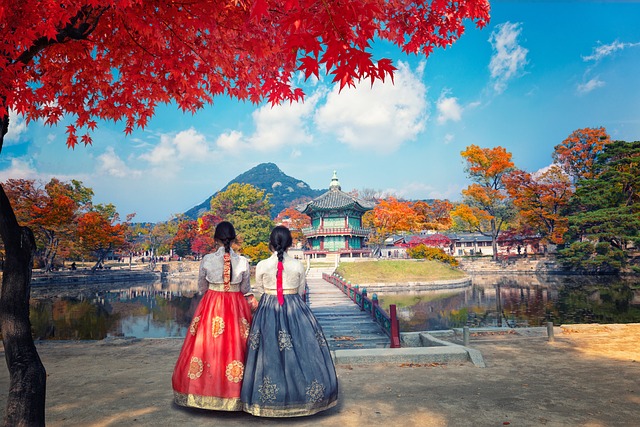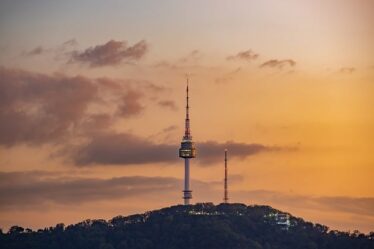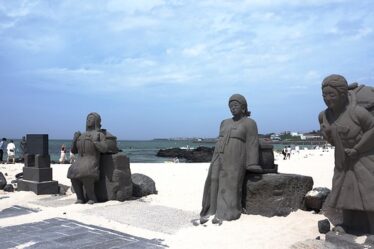
Introduction
South Korea, officially known as the Republic of Korea, is a dynamic and diverse country situated on the southern part of the Korean Peninsula in East Asia. Known for its blend of traditional heritage and modern innovation, South Korea offers travelers a rich tapestry of experiences. From bustling cities and serene countryside to ancient temples and cutting-edge technology, South Korea provides a multifaceted adventure for any traveler. This guide explores the best places to visit, cultural highlights, and practical tips for exploring South Korea.
Top Destinations
Seoul
Overview: The capital city of South Korea, Seoul, is a bustling metropolis where traditional and contemporary elements coexist harmoniously. It’s a city of vibrant neighborhoods, historic sites, and modern attractions.
Key Attractions
- Gyeongbokgung Palace: The largest of the Five Grand Palaces built during the Joseon Dynasty, Gyeongbokgung is a symbol of Korea’s royal history. The palace features beautiful architecture, gardens, and the National Palace Museum of Korea.
- N Seoul Tower: Offering panoramic views of the city, N Seoul Tower is a must-visit for breathtaking cityscapes and a romantic evening spot.
- Myeongdong: A bustling shopping district known for its street food, fashion stores, and cosmetics shops. Myeongdong is a great place to experience Seoul’s vibrant urban life.
- Insadong: A cultural district where visitors can explore traditional Korean art, antiques, and crafts. Insadong also features tea houses and restaurants serving traditional Korean cuisine.
Busan
Overview: South Korea’s second-largest city, Busan, is renowned for its stunning beaches, vibrant port, and dynamic cultural scene.
Key Attractions
- Haeundae Beach: One of Korea’s most famous beaches, Haeundae offers golden sands, clear waters, and a lively boardwalk.
- Gamcheon Culture Village: Known for its colorful houses and artistic vibe, Gamcheon is a picturesque neighborhood filled with street art, galleries, and cafes.
- Jagalchi Fish Market: The largest seafood market in Korea, Jagalchi offers a wide variety of fresh seafood and local dishes. It’s a must-visit for food enthusiasts.
- Beomeosa Temple: A historic Buddhist temple located on the slopes of Geumjeongsan Mountain, offering a serene atmosphere and beautiful architecture.
Jeju Island
Overview: Jeju Island is a volcanic island located off the southern coast of Korea. Known for its unique landscapes, including lava tubes, volcanic craters, and stunning beaches, Jeju is a popular destination for nature lovers and adventurers.
Key Attractions
- Hallasan Mountain: The highest mountain in South Korea, Hallasan offers scenic hiking trails and panoramic views. It’s an extinct volcano with a unique ecosystem.
- Seongsan Ilchulbong (Sunrise Peak): A UNESCO World Heritage site, this volcanic tuff cone provides spectacular sunrise views and is a popular hiking destination.
- Manjanggul Cave: One of the longest lava tubes in the world, Manjanggul Cave is a fascinating underground attraction with impressive lava formations.
- Jeju Loveland: An outdoor sculpture park with a playful and sometimes provocative collection of art exploring themes of love and sexuality.
Gyeongju
Overview: Often referred to as “the museum without walls,” Gyeongju is a city rich in ancient Korean history and cultural heritage. It was the capital of the Silla Kingdom, which ruled Korea for nearly a millennium.
Key Attractions
- Bulguksa Temple: A UNESCO World Heritage site, Bulguksa is an iconic Buddhist temple known for its exquisite architecture and historical significance.
- Seokguram Grotto: Also a UNESCO World Heritage site, this grotto features a stunning Buddha statue and is a masterpiece of Silla art and architecture.
- Anapji Pond: A beautiful historic pond surrounded by reconstructed palaces and gardens, offering a peaceful retreat and picturesque scenery.
Incheon
Overview: Located near Seoul, Incheon is a major port city with a mix of modern attractions and cultural sites.
Key Attractions
- Incheon Chinatown: The largest Chinatown in Korea, featuring traditional Chinese architecture, shops, and restaurants.
- Songdo Central Park: A large urban park in the Songdo International Business District, offering a green space with walking paths, water features, and recreational areas.
- Incheon Grand Park: A vast park with hiking trails, a botanical garden, and scenic spots, perfect for outdoor activities and relaxation.
Cultural Experiences
Korean Cuisine
- Kimchi: A staple of Korean cuisine, kimchi is a fermented vegetable dish, usually made with cabbage and radishes, and seasoned with chili peppers, garlic, and ginger.
- Bulgogi: Marinated beef grilled to perfection, often served with rice and various side dishes.
- Bibimbap: A mixed rice dish topped with vegetables, meat, and a spicy sauce, offering a balanced and flavorful meal.
- Korean BBQ: An interactive dining experience where diners grill their own meat at the table, accompanied by a variety of side dishes and dipping sauces.
Traditional Festivals
- Chuseok: Often referred to as Korean Thanksgiving, Chuseok is a major holiday celebrated with family gatherings, traditional foods, and cultural performances.
- Seollal: The Korean Lunar New Year, marked by traditional ceremonies, family visits, and games. It’s a time to honor ancestors and wish for good fortune in the coming year.
- Boryeong Mud Festival: Held annually in Boryeong, this festival is famous for its mud wrestling, mudslides, and other mud-related activities.
Travel Tips
Getting Around
- Public Transportation: South Korea has an extensive and efficient public transportation system, including subways, buses, and trains. The T-money card is a convenient way to pay for public transportation.
- Taxis: Taxis are widely available in cities, and apps like KakaoTaxi make hailing a cab easy.
- Car Rentals: Renting a car is a good option for exploring rural areas and national parks. Ensure you have an international driving permit if needed.
Language
- Korean: The official language is Korean. While English is spoken in major tourist areas, learning a few basic Korean phrases can enhance your travel experience.
Safety
- General Safety: South Korea is considered a safe destination for travelers. Standard safety precautions apply, and the country is known for its low crime rate.
- Health: No specific vaccinations are required for entry. However, it’s advisable to have travel insurance and be aware of any health advisories.
Conclusion
South Korea is a destination that offers a rich tapestry of experiences, blending modernity with tradition. From the vibrant streets of Seoul to the serene landscapes of Jeju Island, the country caters to a wide range of interests and preferences. Whether you’re exploring historic temples, indulging in delicious cuisine, or immersing yourself in local festivals, South Korea promises a memorable and enriching travel experience. Prepare to be captivated by its unique charm and diverse attractions as you embark on your journey through this fascinating country.

